eyewear
Latest
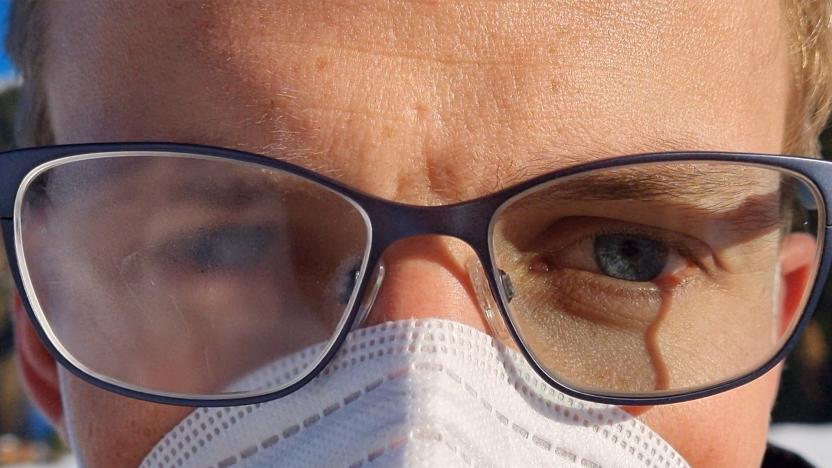
A nano-thin layer of gold could prevent fogged-up glasses
A gold nanocoating could prevent your glasses from fogging up.
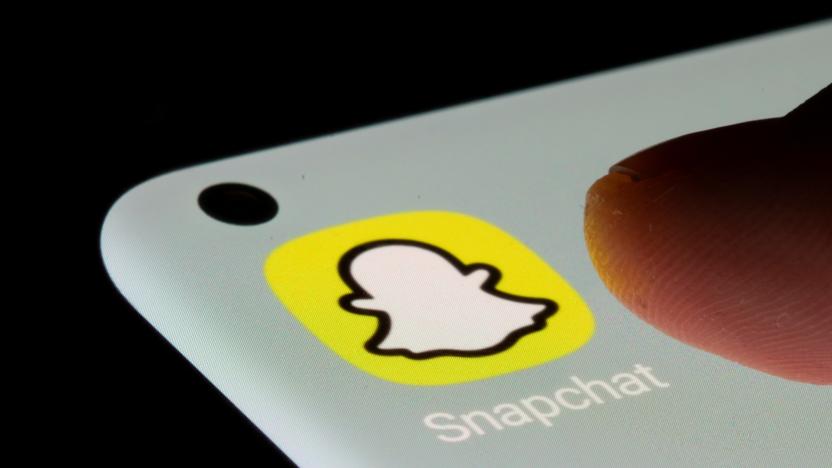
Snapchat and Amazon team up for AR shopping, starting with eyewear
You'll be able to virtually try on thousands of eyewear styles from Amazon Fashion before buying any of them.
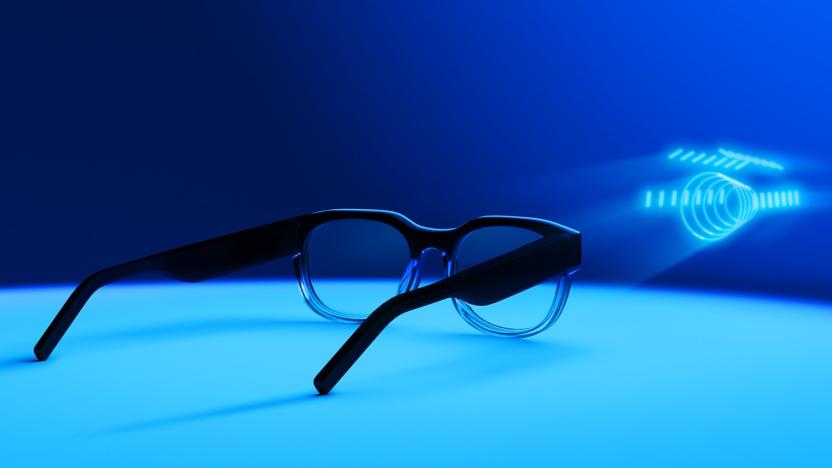
North's next-generation smart glasses arrive in 2020
North only made its smart glasses widely available in September, but it's already thinking of the future. The Canadian wearable tech maker has revealed that it's releasing its next-gen eyewear, Focals 2.0, sometime in 2020. It's not saying much about what they'll entail besides showing a teaser image (which doesn't add more). However, it is promising that the new glasses will operate at a "completely different level" -- hyperbole aside, they're supposed to reflect a year of learning how to make and sell these devices.
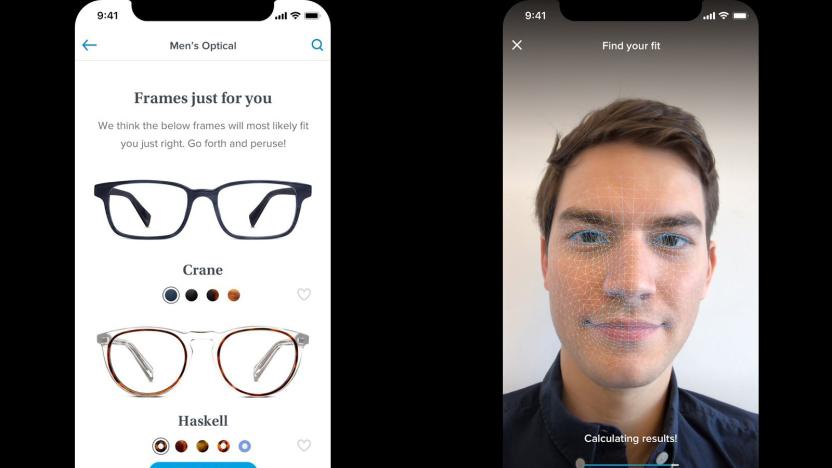
Warby Parker recommends glasses using your iPhone X's depth camera
The depth-sensing front camera on the iPhone X isn't just useful for unlocking your phone or making silly emoji clips. Eyewear maker Warby Parker has updated its Glasses app for iOS to include an iPhone X-only recommendation feature. Let the app scan your face and it'll recommend the frames that are most likely to fit your measurements. This isn't the same as modeling the frames on your face (wouldn't the iPhone X be ideal for that?), but it could save you a lot of hemming and hawing as you wonder which styles are a good match.

ODG launches its Snapdragon 835-based mixed-reality glasses
The name Osterhout Design Group (ODG) might not sound all that familiar, but it has unveiled two mixed-reality smartglasses at this year's CES. These new devices, called the R-8 and the R-9, are two of the first wearables powered by Qualcomm Snapdragon 835. They're both capable of augmented and virtual reality overlays, though the R-9 has more-sophisticated features to go with its higher price point. It has a 50-degree field of view and 1080p resolution, whereas the R-8 has a 40-degree FOV and a 720p resolution. Further, it functions as a development platform for mobile AR and VR, as well as smartglass applications.

Level is a pair of glasses that doubles as an activity tracker
Last year, VSP, the nation's largest vision care provider, unveiled what it thinks is the eyewear of the future. It's called Project Genesis and it comes from The Shop, a thinktank innovation lab within VSP. Project Genesis is essentially a pair of glasses with a slew of activity tracking sensors built into the temple. The idea here is that it's a lot easier to remember to put on your glasses -- which is what many people need to wear everyday anyway -- versus something like a Fitbit. And sensor-laden eyewear offers other potential metrics too, like gait and posture. Now, VSP is ready to take the next step. Starting this Saturday, it's partnering with University of Southern California's Center of Body Computing to conduct a four-month long pilot study of the glasses with hundreds of volunteers. Oh, and the hardware has also been completely reimagined into something much more consumer-friendly. Say hello to the Level.

These smart glasses became my erratic personal trainer
Fitness wearables don't have to go on your wrist -- although it makes sense that most of them are designed that way. We've been wearing wristwatches for generations, so it's a place where we're used to tethering something. But how about the original wearable: eyewear? JINS Meme is a pair of unassuming smartglasses that have highly sensitive three-axis gyroscopes and accelerometers inside. And because they're situated on your head, the Japanese eyewear company says it can offer insight into your posture and balance and pinpoint weaknesses. To help you with all of the above, JINS recently launched a core-training application ("taikan") to complement its existing running-coach app. It tests your core strength (think: abs, back, abductors, butt, etc.) and offers a live critique on how you're doing. Here's how training went.

Warby Parker wants you to use your phone for eye exams (update)
Warby Parker, the eyewear company that sends you frames to try on before you make a purchase, has some lofty goals for the near future. In addition to plans that'll almost double its current retail footprint, the start-up has tech in the works that will save you a trip to the optometrist for an eye exam. "We think that would increase access to eye exams," co-founder Dave Gilboa told The Wall Street Journal. "It's early in the process but we are excited about the potential." Of course, besides the convenience, it'll also provide an avenue for folks who really need their eyes looked at to get some help at home.
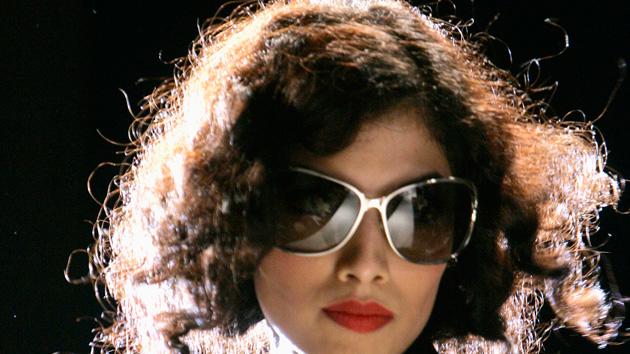
Intel teams with Luxottica to make smart eyewear fashionable
In case it wasn't already clear that Intel believes wearable tech should be stylish, the company has just forged a multi-year partnership with the glasses gurus (and Google Glass partners) at the Luxottica Group. The two will collaborate on smart eyewear that you'd actually like to put on your face; it's not happy with the current, overly utilitarian (read: ugly) approach to heads-up displays. They aren't talking specifics, but the aim is to make "premium, luxury and sports" glasses with a dash of intelligence. You won't have to wait long to see the first fruits of this relationship, at least, since the duo expects a product in 2015. Between this and talk of Intel-powered Glass, it's clear that the chip maker wants a prominent spot on your cranium -- it's determined to take wearables seriously and avoid missing the boat, like it did with smartphones. [Image credit: AP Photo/Gurinder Osan]

Edinburgh becomes the first UK airport to openly trial Google Glass
Google Glass is still a rare sight in the UK, but it's proving popular amongst brands and businesses, especially when customer service is involved. Virgin Atlantic previously used the headset to welcome passengers to Heathrow, but only now is it making it's airport debut in Scotland. Edinburgh Airport today announced plans to equip its customer service teams with Google's smart eyewear, becoming the first UK airport (not airline) to use it on the front line. Staff will be fed real-time flight information, language translations and information about the local area, allowing them to provide assistance to travellers throughout the airport and not from behind a check-in desk. The airport says it will test Glass until December, meaning you might hear the phrase "OK Glass" if you find yourself, like many recent Ryder Cup golfers, passing through Scotland's busiest terminal in the coming months.

Tesco's prototype Glass app lets you order milk by looking at the barcode
While supermarkets have gone mobile to help you order bread and milk while on the go, wearable tech has remained largely unexplored. Not wanting to be left in the chilled section, Tesco gave its R&D boffins Google Glass and tasked them with helping customers order their groceries while barely lifting a finger. The result was a new prototype Glass app that lets the wearer scan a barcode to quickly add products to their virtual basket or find out their nutritional information. Tesco admits that it would struggle with the rigors of a weekly shop, but says the app perfect for "micro interactions" -- i.e. that time when you realise you've just used the last piece of toilet roll.
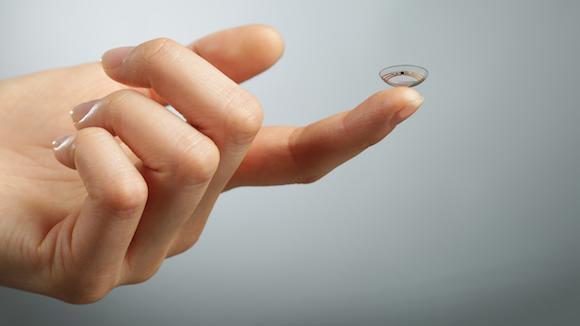
Google strikes smart contact lens deal to track diabetes and fix farsightedness
With Glass and Android Wear, Google has already invested a lot of time and resources into developing the next-generation of wearables, but it's another of its eye-focused projects that has today received its first major boost. The search giant's secret Google[x] team has confirmed that it's licensed its smart eyewear to healthcare specialist Novartis, which will develop the technology into a product that can improve eye care and help manage diseases and conditions.

Google's first fashionable Glass frames are designed by Diane Von Furstenberg
Diane Von Furstenberg may be better known for wrap dresses than wraparound shades, but her fashion label has actually been a long-term collaborator with Google Glass. The partnership has now resulted in a new "DVF" collection of Glass options, including five new frames and eight new shades with which to customize (and perhaps soften) your futuristic appearance. They'll be available to Explorers in the US from June 23rd, both via Google's own site and from Net-a-porter, although there's no word on how much extra you'd need to spend beyond the $1,500 cost of the beta device itself. On the same day, Google's own Titanium collection will also become available through the Mr Porter online store. Meanwhile, we're still waiting on more sporty options from the likes of Oakley and Ray-Ban, although these might not arrive until Google Glass finally shifts into full commercial mode.

New smart glasses warn when you're fatigued
Many people know that they should take breaks when they're fatigued, but actually recognizing that worn-down state is tricky; it's all too easy to push past the breaking point. If JINS' upcoming Meme smart glasses live up to their billing, though, you'll always know when it's time to relax. The Bluetooth wearable includes both eye and motion sensors that can tell when you're close to nodding off. If it gets to that point, a companion smartphone app will give you a heads-up. The eyewear is useful even when you're fully alert, as it can handle basic fitness duties like step counting and calorie tracking.

These laser goggles let you live out your X-Men dreams
Many X-Men fans want to be Wolverine, but the cool kids know that Cyclops is the real star. How can you beat lasers for eyes? Patrick Priebe is most certainly aware, as he built a real-world set of laser-blasting goggles to emulate Cyclops' optic blasts. While the wearable isn't powerful enough to take down the likes of Magneto, it lets the fortunate user burn cloth and pop balloons just by winking an eye. Unfortunately, you probably won't get to try the goggles unless you hang out with Patrick. He's not making additional pairs or offering blueprints, in part because the design is inherently dangerous -- it would put high-powered lasers just a short distance from your head, after all. Still, the eyepiece could well be the closest that we get to Scott Summers' superhero powers without a genetic mutation.

Ray-Ban and Oakley are working with Google Glass
Google only recently announced versions of its Glass headset attached to conventional specs and sunglasses (shown above), but a new partnership with Luxottica -- the company behind brands including Oakley and Ray-Ban -- will give it a significant boost. Described as a strategic partnership to "design, develop and distribute" Glass eyewear, it promises headsets "that straddle the line between high-fashion, lifestyle and innovative technology." Oakley has shown off its own heads-up display equipped goggles already, and one wonders if the two projects will merge or continue separate development. Andrea Guerra, CEO of Luxottica Group, says his company is proud to "set the pace in the eyewear industry once again," but offers few details on how or when that will happen, with more info to be released later. The Google Glass G+ post is a bit more revealing, highlighting Luxottica's more than 5,000 retail locations and distribution channels that will come in handy later. Of course, those big name brands will also help Glass expand beyond the 40 or so variations offered currently in its Titanium Collection (seen in the gallery below) and make the product something people don't want to snatch off of your face. Google's "Captain of Moonshots," Astro Teller, sees the deal as a way to push "smart eyewear" forward -- although wearers may want to wait for the law to catch up.

Google teaches Glass owners how to mind their manners
Google wants society to welcome Glass with open arms, but that hasn't proven to be easy when some early owners have run into trouble -- there's a real chance that one bad user could ruin the eyewear's reputation. To get on the public's good side, the company has published an etiquette guide that teaches Glass wearers how to be on their best behavior. Many of the tips reflect common sense, but bear repeating: ask before you record anything, avoid wearing the device in risky situations and pay attention to the world around you. However, the guide is also a reminder that you're effectively Google's ambassador when you use Glass. The company wants you to politely answer questions from curious onlookers, and it prefers that you take off the eyepiece when asked instead of creating a fuss. The advice is strictly optional, but we'd suggest taking it seriously. It may be the key to social acceptance if Glass ever goes on sale to the general public.

Vuzix plans to make smart sunglasses you'd actually like to wear
Although smart sunglasses exist (like Recon's above), they're seldom pretty by the usual standards -- you won't impress many people at the beach. If Vuzix has its way, though, these shades will be as fashionable as the eyewear from your favorite label. It has just reached a deal with an unnamed major electronics company that could lead to smart glasses that look just as good as "designer sunglasses;" see-through waveguide optics would keep the display relatively subtle. Just don't hold off on buying any traditional gear in the meantime. Vuzix doesn't expect to build prototypes before 2015, let alone a finished product. Still, it's good to know that smart sunglasses and style won't be mutually exclusive at some point in the future.

Lumus reveals classy two-tone Glass competitor with in-lens display
Lumus is a heads up display (HUD) manufacturer better known for its military-grade products, some of which have been deployed in US Air Force F-16 and A-10 helmets. Its latest effort, the DK-40 dev kit, is an attempt to steer its tech toward the consumer market. And yes, it looks a lot like Google Glass. But instead of projecting notifications on the outskirts of your peripheral vision, the entire right lens of Lumus' Android-powered eyewear is a 640 x 480 see-through display. The DK-40 also includes a motion sensor and 5-megapixel camera necessary for a true AR experience. Though its sleek design is more socially acceptable than its fighter pilot headgear, Lumus doesn't intend to mass-produce anything just yet. The glasses are still deep in development stages, harboring only 1-2 hours worth of battery life. Instead, the company simply wants to promote the adoption of its lens technology. The entire monocular kit and SDK will debut at CES 2014, but won't ship to OEMs and "select developers" until the end of Q1 2014.

Google invites Glass Explorer Edition owners to upgrade their eyewear
Google promised early Glass wearers that they could eventually upgrade to next-generation Explorer hardware, and that moment is finally at hand. The company is now inviting owners to swap devices through a free mail exchange before February 5th. While the upgrade isn't mandatory, Google warns that it's only developing with the newer Explorer Edition in mind -- there's no guarantee that new accessories or software will work on old models. The invitation is more of a push than a gentle nudge, then, but we doubt that many Glass users will complain about a free update. Check out an excerpt from the invitation after the break.









